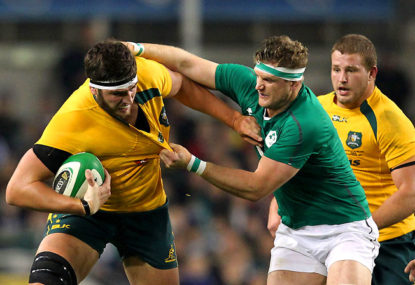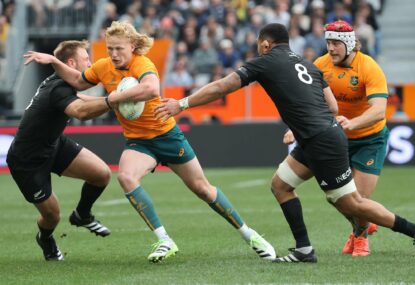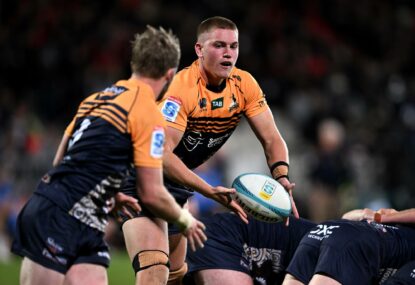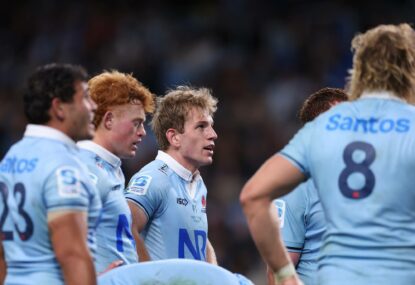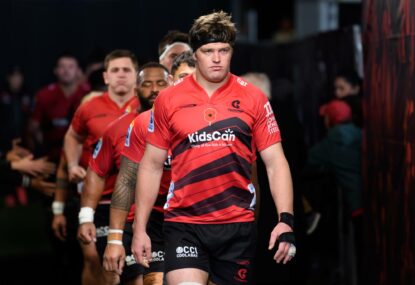Throughout the 2016 season, Wallabies coach Michael Cheika has taken a chop-and-change approach to the Wallabies pack that is bordering on farcical.
The Wallabies’ locking combinations have changed all too regularly.
Adam Coleman has been a revelation and appears to be the only sure selection.
Outside of Coleman however, no one is certain.
After a poor performance in the first Bledisloe Test, in which New Zealand’s defensive line-out utterly dominated the match, Rob Simmons was unceremoniously dropped to the NRC.
Then, likely as a result of Australia’s line-out woes in the second Bledisloe, Simmons was brought back for the Argentina Test, while Kane Douglas was relegated to the NRC.
Australia’s line-out performed fantastically against Argentina and then adequately the week after. The scrum, however, collapsed in the second half.
Despite this, Cheika has decided to drop Simmons, the set piece specialist, in favour of Douglas who is as ineffectual as Simmons around the park and greatly inferior in set pieces. It makes no sense.
Additionally, Cheika’s pick at six has been equally inconsistent with Scott Fardy, Ben McCalman, and Dean Mumm all starting at different points of the year.
Cheika has said that “the minute someone feels like he is guaranteed selection, he is never going to perform,” implying that no one’s spot is safe.
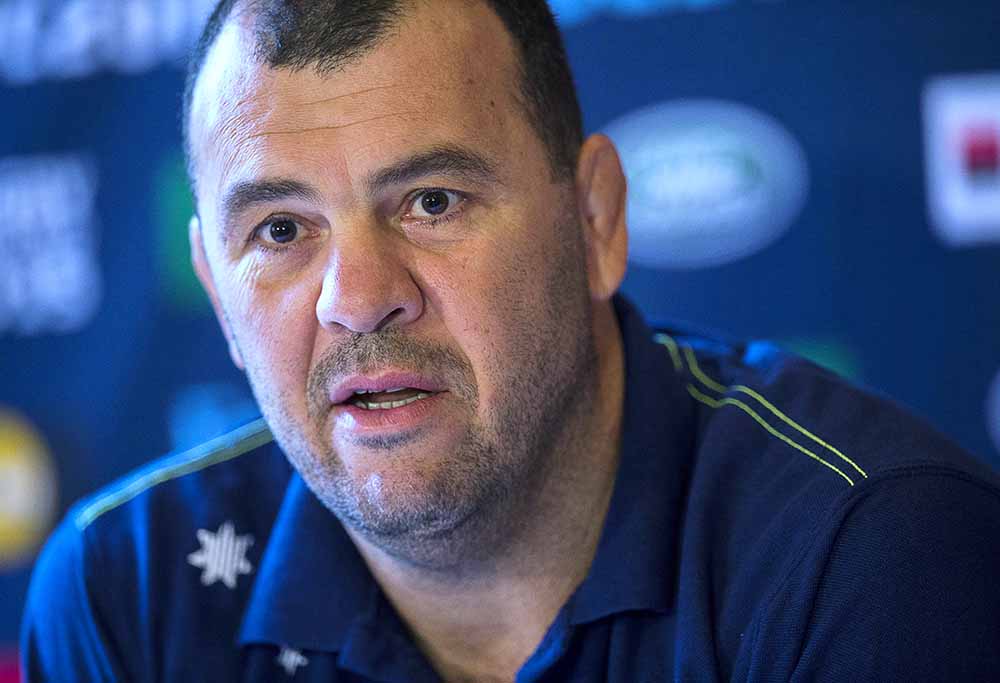
With all due respect, Cheika has made a complete joke of this statement through the continued selection of Dean Mumm.
Mumm is a nice, hard-working player who loves the gold jersey.
However, he has done nothing throughout 2016 to warrant his selection over other options such as Scott Fardy. He has had a string of form ranging from poor to horrendous.
Against Argentina he managed to miss seven of 17 tackles and turn the ball over twice.
He misses far too many tackles, is a poor ball carrier and has no impact in the rucks.
Mumm was supposedly brought back into the squad for his line-out prowess, but Simmons and Coleman have taken over main line-out duties.
Simmons was dropped for Douglas despite being by far our best line-out player, and the fact is, he is as effective as Douglas around the park.
Mumm, meanwhile, is of a similar standard to Fardy in the line-out and has been greatly inferior to Fardy in all other areas.
Yet despite this, he keeps being selected over superior players.
Lastly, Cheika has continued the selection of the ‘Pooper’ where possible in 2016, and has substituted David Pocock for Sean McMahon when Pocock was injured.
During this time, however, he has constantly teased bringing Timani in at number eight and moving to a more traditional back row.
Despite this, once Pocock was injured, Cheika again opted for the dual sevens in Hooper and McMahon in Pretoria, saying that the dual number seven strategy was ideal for the Wallabies.
Once McMahon was injured and there were no more dual seven options Cheika suddenly announced that a traditional eight was the ideal strategy for the Wallabies, even though this was in contradiction to all previous selections.
This does not demonstrate any sort of long-term strategy from Cheika, but seemingly a lack of vision and long-term strategy.
Fans wonder why the Wallabies play like a bunch of individuals rather than as a team, and it is because the players do not have the opportunity to learn to play as a team when the team is regularly changed so dramatically.
How are the Wallabies supposed to build any sort of rapport or consistency with the constant musical chairs in selection?
This is not the case of Cheika being forced to drop under-performing players, as proven by the continued selection of Mumm over Fardy, and Bernard Foley over better options at 12 in Samu Kerevi and Reece Hodge.
Michael Cheika must drop underperforming players, select players in their correct positions, and importantly, play a number of matches with the same team, when possible, rather than changing so much week to week.





























































































